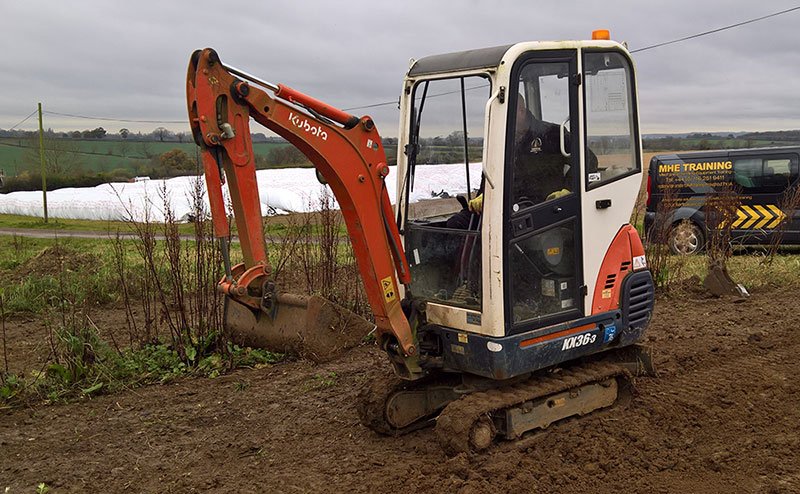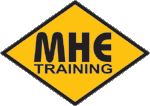
Equipment: 360° Mini Excavator
Accrediting Body: ITSSAR
Level: Refresher - Certified Operators Requiring a Refresher/Re-test in accordance with HSE recommendations
Location: Leicester Training Facility / On Site
Course Duration: 2 Day(s)
Max Ratio 3 trainees per course
Cost: Refresher course £400 + VAT
To find out more, Contact Us
Course Aim
The aim of the course is provide the theoretical and practical knowledge to safely operate an excavator for general purpose applications. This course meets the statutory requirements of the Health & Safety at Work Act 1974, and other relevant statutory provisions.
Course Content
- Responsibilities under the Health & Safety at Work Act (1974) and PUWER (1998); LOLER (1998) and (HSG 136) Workplace Transport Safety
- Safe operator practices (Company Mobile Plant Rules if on customer premises), including evasive action/roll-over measures
- Daily and weekly maintenance schedules
- Identification of components
- Daily inspections and fault recording
- Start-up procedures
- Factors affecting stability
- Motive and hydraulic controls/introduction to all controls and gauges
- Manoeuvring in open and confined spaces
- Travelling over different types of terrain including inclines
- Excavation principles
- Working on stock-piles/side-casting/forming edge protection/forming ramps and work platforms
- Loading hoppers
- Loading production machinery/transport vehicles
- Trenching principles/reinstatement/working with a banksman/weather conditions
- General levelling and grading
- Batter formation (where required)
- Identification and changing of attachments
- Re-fuelling
- Parking and post-stop checks
- Travelling on the public highway
- Loading and unloading from a transporter (where applicable)
Theory
- The need to train and statuary requirements
- Understanding machine stability and limitations
- Causes of accidents; risks associated with mobile plant
- Safe operator practices/understanding the operator’s handbook
- Pre-start checks, start-up procedures and safety checks
- 3Daily and weekly maintenance requirements
- Risk assessment/Permit to Work procedures/hazards associated with underground and overhead services
- Excavation principles
- Loading techniques
- Backfilling, grading, spreading and levelling of materials
- Identification of attachments particularly quick-hitch systems – safe removal and re-attachment
- Effects of differing weather conditions
- Lifting limitations
- Safe parking, re-fuelling and post-stop checks
- Safe loading and unloading procedures from a transporter (where applicable)
- Requirements for travelling on the public highway
Practical
- Pre-start safety checks and start-up procedures
- The ability to manoeuvre and operate the vehicle correctly within the manufacturer’s recommendations and to the operator’s safety code
- Travel safely about site including inclines
- Manoeuvre accurately within confined spaces
- Follow safe operational procedures for excavation and extraction
- Work safely on stock-piles
- Load production machinery and/or transport vehicles
- Backfill, grade, spread and level materials
- Correctly identify hitching systems and follow safe procedures for removal and re-attachment
- Safely load and unload from a transporter (where applicable)
- Correctly park, shut-down and secure the vehicle
- Carry out a post-stop inspection
Course Requirements
- Notebook and pen
- Appropriate safety wear
All other materials are provided on the course.
Testing & Certification
At the end of this course the standard ITSSAR practical and theoretical test where possible will be conducted for the equipment. This is the current recognised and recommended standards practical operators test. Operators are issued with an encapsulated wallet and full sized certificate. Companies are issued with an A4 sized certificate, the trainees’ original practical and theoretical test marking sheet, course record and written trainee report where appropriate, as proof of training.

